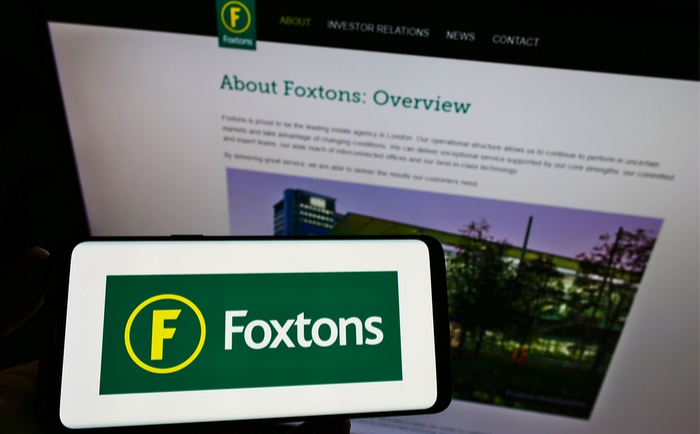As a young man of 20 in his first job at a state-owned enterprise in China, Guoli Chen found senior management fascinating, but not in a good way. His boss’s boss did very little – unless one counts reading newspapers, drinking tea and gossiping as work. “I wondered whether anyone could replace him without affecting the [organisation’s] overall performance”, recalls Chen, now a professor of strategy at INSEAD.
He didn’t stick around to find out. After two years, Chen moved on. His second job couldn’t be more different, in culture as well as the lessons he learned. Working in an investment bank, Chen observed how the company’s venture capital arm picked firms chiefly on the strength of the founding team, especially the chief executive. “Given the uncertainty of the [firms’] business potential…the VC literally bet the success of their investments on the individual”, Chen says in an INSEAD Knowledge podcast.
Chen’s vastly different early-career experiences planted the seed for what is to be a stellar academic career dedicated to the study of CEOs and other senior executives as well as the complex dynamics among them that could make or break companies. That seed is rooted in the question, “Do CEOs matter?”
The American archetype of a charismatic, powerful chief executive, as Chen finds, is hardly universal. The impact any CEO makes on their organisation turns on a complex interplay of factors, from culture, industry, and personality to timing.
The romance of leadership
Through the broadest lens of culture we can discern stark differences. Take American and Japanese CEOs for instance. On average, Chen observes, chief executives of major Japanese firms are appointed at the age of 61, a full 10 years older than their counterparts in the United States. CEOs in Japan are almost expected to “have white hair and look wise”, Chen remarks.
Yet for all their perceived seniority and experience, CEOs at Japanese companies are largely figureheads who tend to wield less power than their counterparts at American ones. Chen attributes this to the collective and consensus culture in Japan as well as banks’ ownership stakes in large firms, all of which translate to less control in the hands of top executives.
This latitude in decision-making or managerial discretion is what underpins CEO impact. The greater the managerial discretion, the bigger impact the CEO makes, for better or worse. Top managers at state-owned enterprises, straitjacketed by government diktat, have little say, even in hiring. In comparison, CEOs of private firms have much greater discretion and, by extension, bigger impact on firm performance.
But even in the private sector, Chen notes, CEO discretion varies from industry to industry and firm to firm. Those who run technology or manufacturing firms have control over prices, product design, packaging and distribution that their counterparts in the highly regulated commodities industry such as oil and gas could only dream of. Ambitious leaders also find it easier to leave their mark on smaller, younger firms with a more open and entrepreneurial culture compared to older or established firms.
All told, says Chen, research shows that about 15% to 20% of firm outcomes can be attributed to CEOs, depending on the sample period and empirical models.
“CEOs and leaders are important, but maybe not as much as we thought”, he says, noting that people tend to over-attribute successes or failures of organisations to a single individual, or “the romance of leadership”.
Masters of the world
Still, 20% is nothing to sniff at, and it pays to delve into what kind of CEOs are most likely to succeed. Chen dissects high-profile leaders’ two common personality traits, overconfidence and narcissism, and how they affect CEO performance.
Whether they are overconfident and therefore believe that they are always right, or narcissistic with a craving for external validation, such CEOs favour big, bold moves. For example, they tend to splurge on acquisitions—often in an unrelated industry and at prices substantially above market value. Jean-Marie Messier, for instance, turned a French water utility company into media conglomerate Vivendi Universal over a string of mergers and acquisitions among firms with little synergy. Messier, who famously called himself “master of the world”, was forced to resign in 2002, a year after Vivendi lost €13.6 billion.
Quoting Warren Buffett, Chen says: “Many corporate acquirers think of themselves as the beautiful princess, sure that their kisses can turn toads into handsome princes. But … we have observed many, many kisses, but not many miracles.”
CEO hubris also hurts firms when the advice of other senior executives or directors are ignored, Chen says. His research shows that the benefits of diversity in the top management team can easily be undone by a chief executive who ignores others’ counsel. And when that same CEO stumbles, such as in earnings forecasts, they are less likely to correct their mistakes.
Even firms’ corporate social responsibility investments can be held hostage to the outsized ego of CEOs, Chen cautions. CSR activities initiated by narcissistic leaders are more likely to be driven by their need for personal glory and therefore negatively impact a firm’s financial performance. Overconfident chief executives, convinced of their ability to weather any adversity, are shown by research to be less likely to invest in CSR activities and more likely to engage in socially irresponsible ones.
On the positive side, overconfident and narcissistic CEOs, through sheer force of personality, are more likely to be innovative. “If others cannot make it happen, they believe that they can,” says Chen. He cites research as showing that narcissistic CEO are more aggressive in adopting disruptive technology. For example, those in the pharmaceutical industry are more likely to initiate strategic alliances and acquisitions of new biotech firms.
Sidekicks matter, too
In addition to the CEO, Chen has trained his scholarly focus on two increasingly prominent members of the C-suite: chief financial officer and chief sustainability officer.
In the CFO, Chen has found the ideal foil to the CEO when it comes to mergers and acquisitions. “In addition to identifying the resources and potential opportunities to pursue the strategy, CFOs lead the … negotiation, financing and contractual arrangements as well as lots of fine details in M&A activities”, says Chen.
His insight extends beyond the role and reaches into the psyche. In a widely reported paper, Chen shows the importance of aligning the cognitive orientation of optimism and pessimism—which affect how we think and how we behave—with roles in the C-suite. He calls it role congruence. For successful M&As, according to Chen, you’d want an optimistic CEO who believes in positive outcomes, supported by a pessimistic CFO who is sensitive to any information that might point to a dud.
As he explains: “CEOs are expected to be more optimistic and open to risks, like Jack Ma and Elon Musk. In the mergers acquisition context, the firm also needs a ’Mr. No’ or a pessimistic CFO who seeks to minimise the risk and ensure an adequate return on the capital allocation and the investment.”
Ideally, Chen stresses, whether it’s the CEO, CFO or other executives, the personalities in the C-suite should be consistent with the demands of their roles. A pessimistic CEO paired with an optimistic CFO could spell disaster for firms in acquisition.
Walking the sustainability talk
Unlike the CFO, the chief sustainability officer is a relative newcomer to top management teams. Although the role is rapidly gaining stature in a world gripped by climate change and disruption of the old economic order, its actual impact had not been systematically examined until Chen and his colleagues took up the challenge.
They found that while CSOs helped firms in the S&P 500 engage in more responsible activities, they tended to be more oriented towards reducing irresponsible behaviours like pollution. To make the most of a CSO, Chen recommends that company draw up a clear CSR strategy and allocate adequate resources to the CSO to implement it.
—Guoli Chen
“In the ideal case, the firm should have a clear CSR strategy, long-term oriented and consistent with high-level commitments”, he says. “And have a very clear role and definition for the chief sustainability officer.”
What about CEOs? Chen stresses that picking the right CEOs is the exclusive responsibility of the board. The task entails matching the firm’s unique needs and challenges with the right candidate’s strengths, expertise and social capital. “In turnaround situations, for instance, with heavy losses and bleeding, to get back to the cash flow … firms are more likely to need a throughput-oriented, tough and cost-cutting or cost-control CEO,” observes Chen.
“By contrast, if an organisation needs innovation, then the candidates who are more open to failure, who would like to do all kinds of experiments become more critical.”
Ultimately, in business as in life, no one—not even CEOs—is irreplaceable. Says Chen: “Personally, I hope that the CEOs and leaders should not have too big an impact on firms … If people ask, for instance, can Singapore survive without [founding Prime Minister] Lee Kuan Yew? Or can Apple continue its success without Steve Jobs? I hope the answer is yes.”
Guoli Chen is a professor of strategy at INSEAD, where he focuses on the influence of CEOs, top executives and boards of directors on firms’ strategic choices and organisational outcomes.
Lee Seok Hwai is a senior editor at INSEAD Knowledge.
This article first appeared on INSEAD Knowledge and is reproduced with permission. Read the original article.





